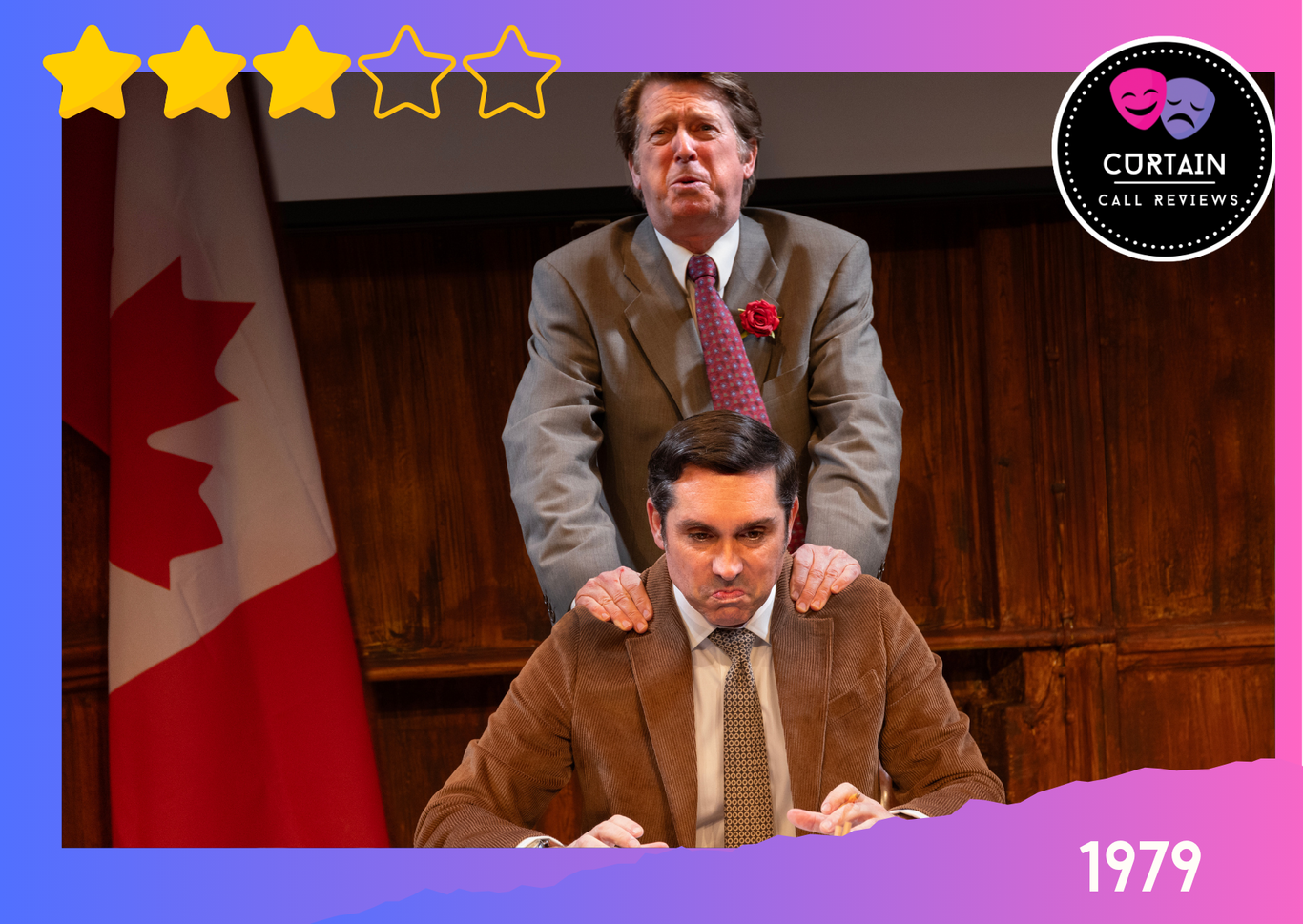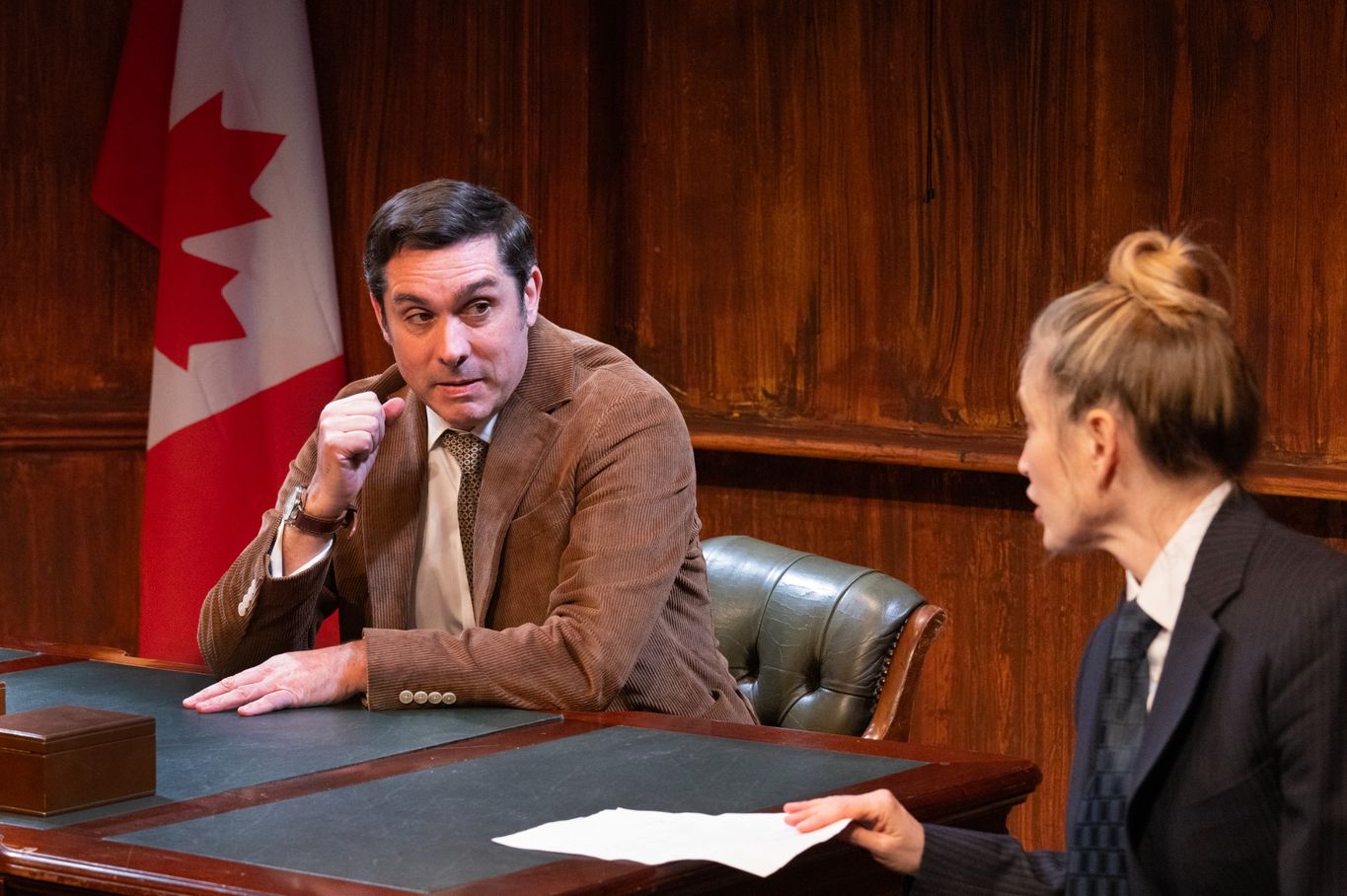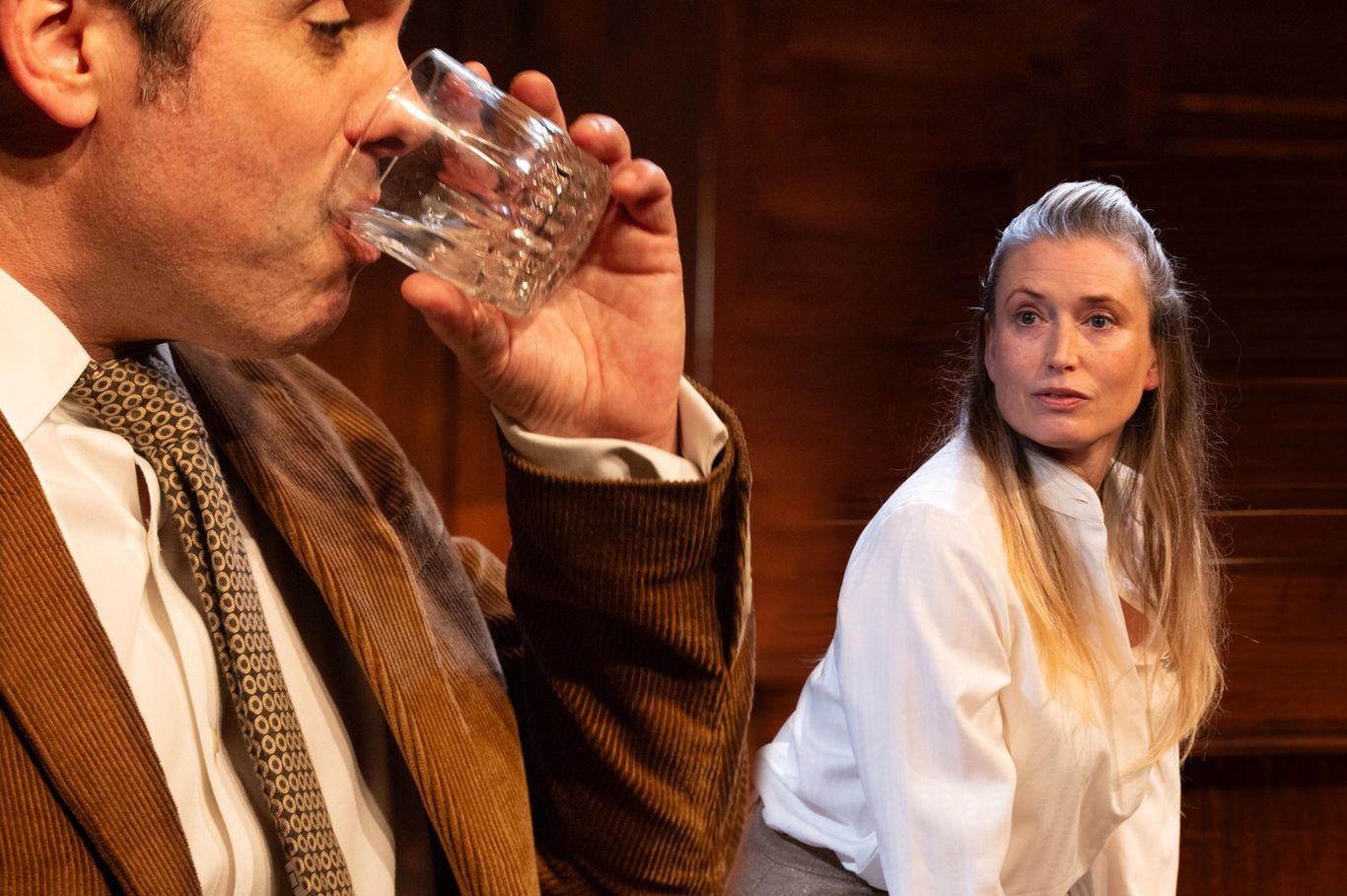
1979
"Filled with deliciously witty repartee"
1979 is a snapshot of a very brief moment in Canada's political history, set during the brief months Joe Clark (Joseph May) was Prime Minister. Written by Michael Healey and directed by Jimmy Walters, the play goes by swiftly. Set in the Prime Minister's Office with wooden walls, a large wooden desk and an incredible sound system, Joe blasts music to comfort himself as the clock ticks towards a momentous parliamentary vote that could end his term.
Straight off the bat, the performances are strong. According to history, Joe has been described as weak, bumbling and lacking charm. May does a great job at highlighting the opposite: Joe's deep respect for the power of democracy, and the firm stance on sticking to his values, are what causes him to fail as a politician. This is also the crux of the show.

Samantha Coughlan and Ian Porter split eight characters between them, from ex-Prime Minister Pierre Trudeau (who enters dancing with a mini chainsaw!) to Clark's wife Maureen McTeer. The conversations are packed with wit and delicious repartees, almost entirely in the form of two-handers, as Coughlan and Porter swap characters non-stop, distinguished by Mim Houghton's costumes. Without caricaturing actual figures or depending on drag for comedic moments, they successfully make the eight characters they share distinguishable from one another. As each person shares a moment with the Prime Minister, the performances remain consistent, and May, despite being the receiver of information most of the time, is never boring to watch.
The show is, unfortunately, let down by the overwhelming amount of exposition to truly grasp the depth of this particular story. The dialogue engages audiences even though characters spend most of their time sitting. Regardless, it is still a rather curious choice to present such a specific story (that even many Canadians are not familiar with) to a British audience.

To bridge the information gap, a large projector screen above the set flashes dates, facts and explanations. This is sometimes done so frequently and quickly, at one point a slide actually apologises for how much reading the audience has to do. The speed of information delivered is overwhelming, even fast readers who are familiar with political jargon may not absorb entirely while keeping up with the onstage action. While this is a useful device, the creativity of choosing to do so is questionable; it also feels more like a history lesson than seeing a play.
Furthermore, in the penultimate scene, Stephen Harper (Coughlan) praises the recently elected Margaret Thatcher for ruling with a firm hand and committing to a five-point plan to transform Britain. It is unclear whether all this is said in irony or not, given that the writer, director and audience all share the benefit of hindsight. Considering the current political climate, however, what is the intention of making such a statement?
As the play ends with Harper being elected as Prime Minister, the audience leave with what they probably already know: politics is less about people, and more about the ability to wield power.
This show was reviewed on the 5th January 2024. 1979 runs at the Finborough Theatre, London until the 27th January 2024. Tickets available here: 1979 – Finborough Theatre
Review written by Vic Chen
Photo credit: Siomon Annand